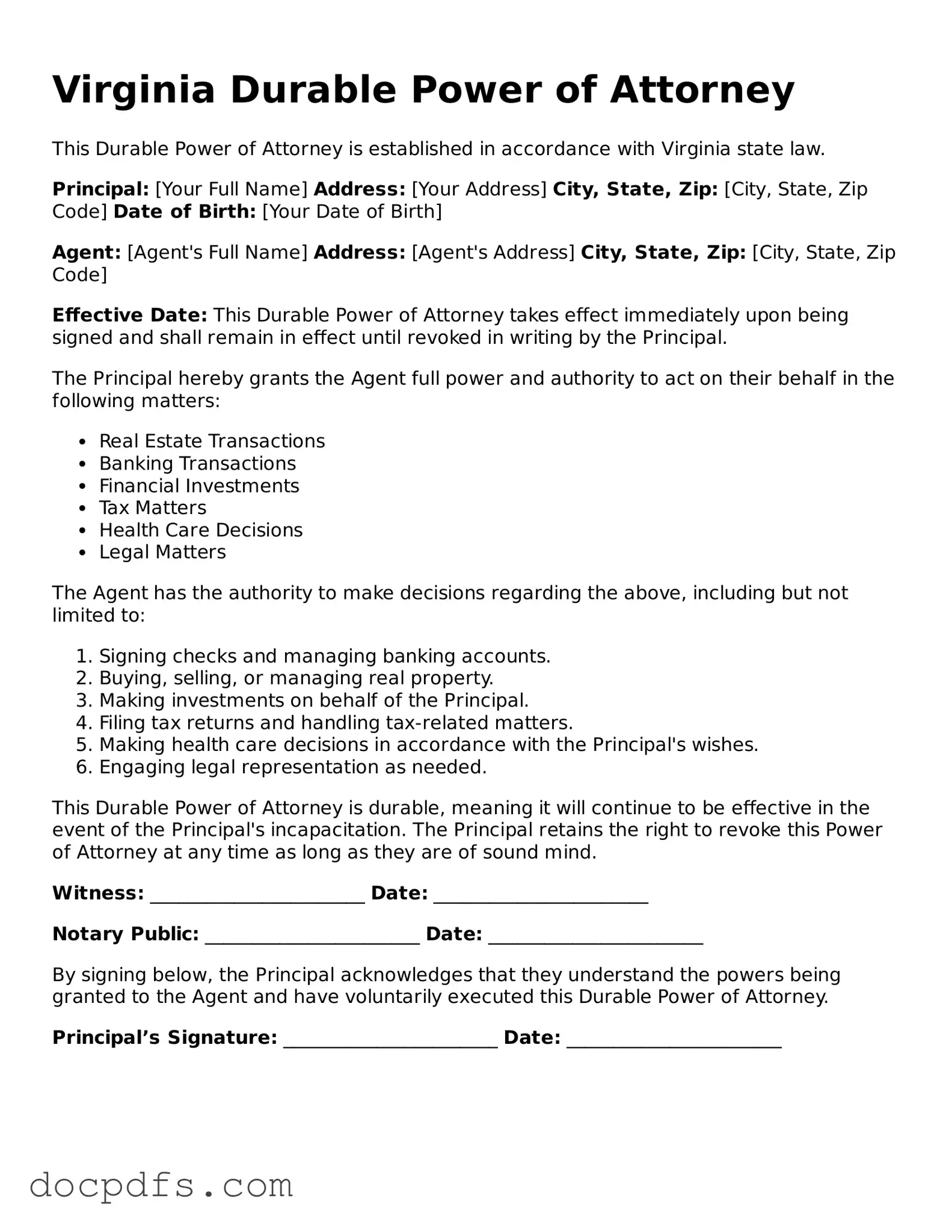Free Virginia Durable Power of Attorney Form
A Virginia Durable Power of Attorney is a legal document that allows an individual to appoint someone else to make financial and legal decisions on their behalf, even if they become incapacitated. This form ensures that your affairs are managed according to your wishes when you are unable to do so yourself. Understanding its significance can help you safeguard your interests and provide peace of mind for you and your loved ones.
Open Durable Power of Attorney Editor Now

Free Virginia Durable Power of Attorney Form
Open Durable Power of Attorney Editor Now

Open Durable Power of Attorney Editor Now
or
⇓ Durable Power of Attorney
Finish this form the fast way
Complete Durable Power of Attorney online with a smooth editing experience.